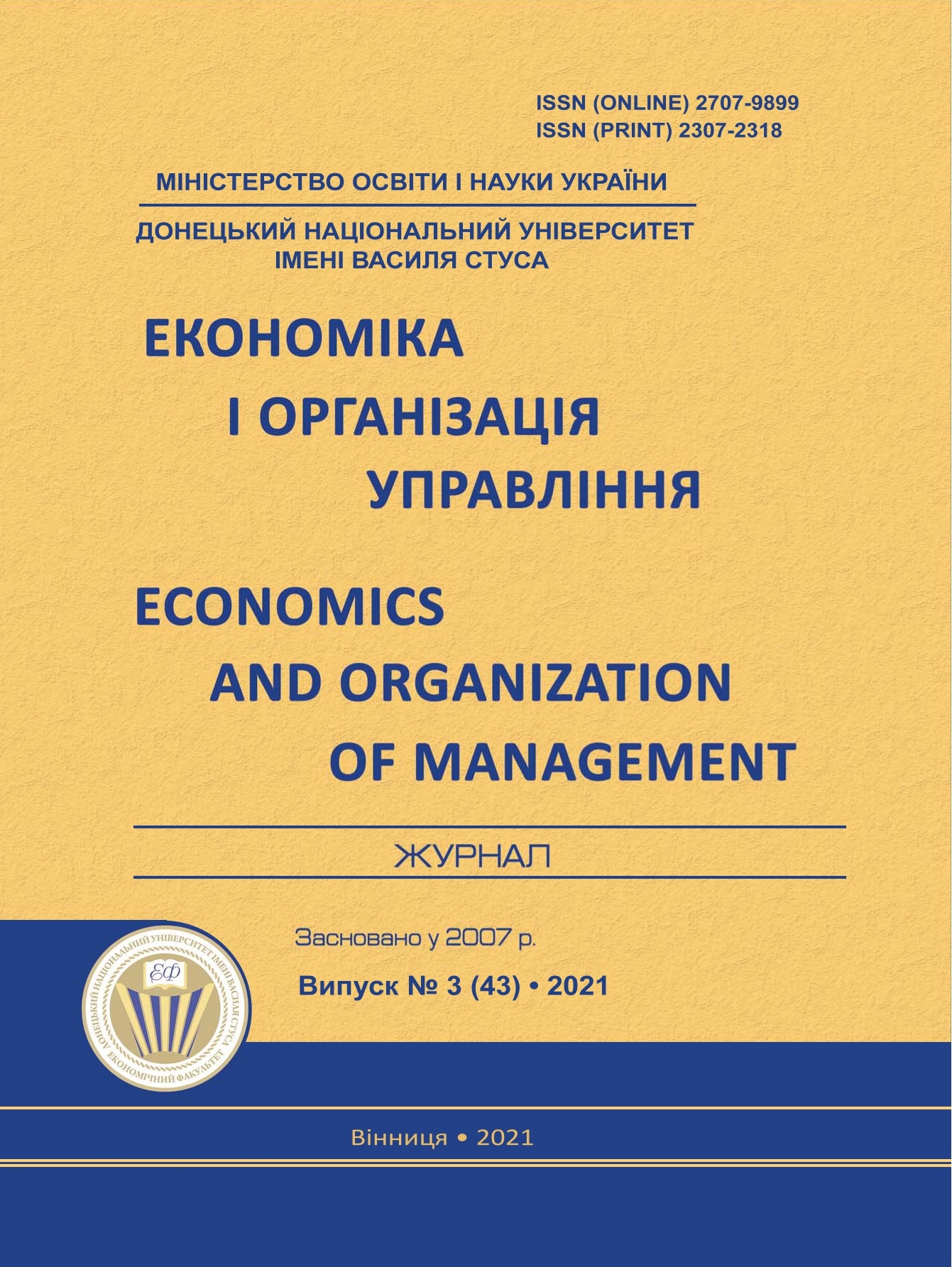Corporate social responsibility under Covid-19 circumstancies: bulgarian business attitude
DOI:
https://doi.org/10.31558/2307-2318.2021.3.1Keywords:
CSR; Covid-19; staff release; wages; fund donationsAbstract
Corporate social responsibility is a topic of many research papers in which a consensus has been reached in terms of priorities for development of companies, society and households. In situation of the Covid-19 pandemic the CSR policies applied by the companies acquire a new content. Volunteering, helping victims of the disease, providing scarce medical supplies are just some of examples of initiatives for which there is evidence from all around the world. Nevertheless, CSR has its own clear philosophy and politically accepted understanding. In different countries have been adopted national strategies for corporate social responsibility with well defined goals and priorities. On 25th of November in 2009 the Council of Ministers of Republic of Bulgaria adopted the first 5-year national strategy for CSR (www.csr.bg). A few months before the appearance of the first Covid-19 cases in China, the Bulgarian government adopted a third 5-year CSR strategy. During the pandemic, despite of the otherwise wellformulated eight key areas for implementation of the strategy, many good practices of corporate action in the context of CSR have been identified. The purpose of this paper is to present the results of a survey among benchmark Bulgarian companies regarding the reaction during the pandemic waves towards the staff and also the customers, the business partners and the society as a whole. In the sample are included SMEs with staff up to 250 people, large companies with more than 250 employees and key institutions in the banking, insurance and energy sectors which manage assets exceeding 10% of Bulgaria's GDP. Relatively small companies in the tourism sector are also included. Indeed the enterprises from the HoReCa sector suffer the most from the Covid-19 pandemic due to the measures and its temporary lockdown. The results of the study clearly show that in conditions of Covid-19 the desire to support the philosophy of CSR is highly reduced by the challenge in front of business to survive, especially of SMEs, but is widely supported by large companies with a benchmark influence for the Bulgarian economy. Attention is also paid to the environmental aspects in the application of CSR by the surveyed companies, as a key component of the concept. The individual answers are visualized through figures and tables. A 5-point Likert scale has been used with five meanings, reflecting neutrality, moderate agreement / disagreement and strong agreement / disagreement with the formulated statement.
References
Adamov, V., Kolev, K., Vrachovski, D., Zahariev, A., & Marcheva, A. (January 2010). Human resources of the health system in Republic of Bulgaria. Cahiers de sociologie et de démographie médicales, 1(50), 1-126. www.bit.ly/3njV3lz
Antwi, H., Zhou, L., Xu, X., & Mustafa, T. (2021). Beyond COVID-19 Pandemic: An Integrative Review of Global Health Crisis Influencing the Evolution and Practice of Corporate Social Responsibility. Healthcare, 9(1), стр. 431-452.
Bogdanova, M. (2019). Social policies and programmes in Europe. International E-journal of Advances in Social Sciences, 5(15), 1306-1313. doi: https://doi.org/10.18769/ijasos.592097
Deneva, A., & Grasic, J. (2020). Bulgarian Mining Industry between Tradition. Vth International Innovative Mining Symposium: E3S Web of Conferences. doi: https://doi.org/10.1051/e3sconf/202017401026
Flew, T., & Kirkwood, K. (2020). The impact of COVID-19 on cultural tourism: art, culture and communication in four regional sites of Queensland, Australia. Media International Australia, 16-20. doi: https://doi.org/10.1177/1329878X20952529
Laktionova, O., Dobrovolskyi, O., Karpova, T. S., & Zahariev, A. (2019). Cost Efficiency of Applying Trade Finance for Agricultural Supply Chains. Management Theory and Studies for Rural Business and Infrastructure Development, 41(1), 62-73. doi: https://doi.org/10.15544/mts.2019.06
Terziev, V., & Ivanov, I. (2020). The national employment plan in Bulgaria - analysis and opportunities for change. International scientific journal „Internauka”, Kiev, Ukraine, 15(95), 6-13.
Terziev, V., Zahariev, A., Pavlov, T., Petkov, K., & Kostov, D. (2021b). The effect of exogenous variables on P/E determinants in the context of expected post COVID-19 crisis recovery. The case of Balkan capital markets. 66th International Scientific Conference on Economic and Social Development, Rabat, 26-27 March, 2021, Economic and Social Development (Book of Proceedings). 66, pp. 184-203. Cakovec, Croatia, 2021: ISSN: 1849- 7535. doi: SSRN: https://ssrn.com/abstract=3814860
Zahariev, A. (2012). Financial Management of Human Resources. V. Tarnovo: ABAGAR. doi: 10.13140/RG.2.1.3561.6402
Zahariev, A., & Zaharieva, G. (September 2003 r.). HR management in Bulgarian firms – empirical evidences. Dialog(3), 5-36. doi: 10.2139/ssrn.2977326
Zahariev, A., Ivanova, P., Angelov, A., & Zaharieva, G. (2021c). Evolution in the regulatory framework for distance learning in a pandemic environment - the experience of Bulgaria. Abstracts & Proceedings of SOCIOINT 2021 - 8th International Conference on Education and Education of Social Sciences, 14-15 June 2021 (стр. 18-24). Istanbul: OCERINT. doi: https://doi.org/10.46529/socioint.202102
Zahariev, A., Prodanov, S., Radulova, A., Zaharieva, G., Pavlova-Banova, M., Angelov, P., Ismailov, T., Aleksandrova, A., Marinova, K. (2020c, September 04-05). The Bank Insolvency: from Lehman Brothers to Covid-19 (International Remarks and National Peculiarities). 58th International Scientific Conference of Economic and Social Development, Budapest 2020, 04- 05 September 2020, Economic and Social Developments (Book ot Proceedings) (pp. 44-59). Cakovez, Croatia, 2021: ISSN: 1849-7535. doi: https://dx.doi.org/10.2139/ssrn.3688961
Zahariev, A., Prodanov, S., Zaharieva, G., Krastev, L., Kostov, D., Pavlov, T., Stanimirov, S., Zarkova, S., Zdravkov, N. (2020d). Тhe Brokerage Insurance Companies under Covid-19 Framework (the Bulgarian experience). 58th International Scientific Conference of Economic and Social Development, Budapest 2020, 04-05 September 2020, Economic and Social Developments (Book ot Proceedings) (pp. 369-383). Cakovez, Croatia, 2021: ISSN 1849-7535. doi: https://dx.doi.org/10.2139/ssrn.3688949
Zahariev, A., Radulova, A., Aleksandrova, A., & Petrova, M. (2021a). Fiscal sustainability and fiscal risk in the EU: forecasts and challenges in terms of COVID-19. Entrepreneurship and Sustainability Issues, 8(3), 618-632. doi: https://doi.org/10.9770/jesi.2021.8.3(39)
Zahariev, A., Zveryakov, M., Prodanov, S., Zaharieva, G., Angelov, P., Zarkova, S., & Petrova, M. (2020a). Debt management evaluation through support vector machines: on the example of Italy and Greece. Entrepreneurship and Sustainability Issues, 7(3), 2382-2393. doi: https://doi.org/10.9770/jesi.2020.7.3(61)

